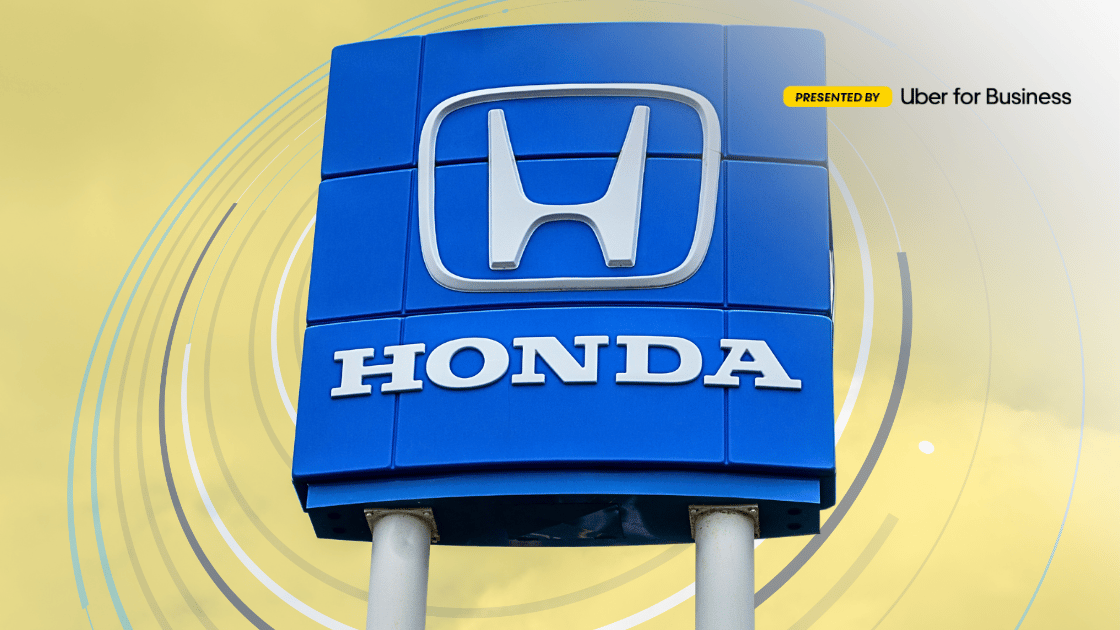
Honda is being forced by the California Protection Agency (CPPA) to revise some of its data practices as scrutiny intensifies over automakers' handling of consumer privacy.
The details: Following its review of the privacy practices of connected vehicles, the CPPA has ordered Honda to overhaul several aspects of its consumer data collection processes and pay a $632,500 fine to resolve claims that the company violated Californians’ privacy rights.
One alleged violation involves Honda requiring consumers to provide more personal information than necessary to opt out of data sales.
Another violation claims Honda made it harder for consumers to use authorized agents for privacy requests and designed its cookie management tool with an easier opt-in than opt-out process.
And lastly. Honda failed to provide the CPPA with required contracts governing its data-sharing practices with advertisers.
As a result: In addition to paying the $632,500 fine, Honda is also required to certify its compliance, train its employees, and consult a user experience (UX) designer to evaluate its methods for submitting privacy requests. The automaker must also change its contracting process to ensure appropriate mechanisms are in place to protect personal information.
Why it matters: With $382,500 of the total fine tied to just 153 cases, the agency is sending a message: privacy violations won’t be overlooked—no matter how many consumers are affected.
What they’re saying: “We won’t hesitate to use our cease-and-desist authority to change business practices, and we’ll tally fines based on the number of violations. Today’s resolution reflects Honda’s early cooperation and commitment to make things right,” stated Michael Macko, Deputy Director for the CPPA Enforcement Division.
Between the lines: The CPPA’s enforcement action against Honda is part of a broader reckoning for automakers over data privacy.
A 2023 study by the Mozilla Foundation found that 25 automotive brands cross the line and lack the appropriate privacy measures when it comes to consumer data collection.
General Motors settled with the Federal Trade Commission (FTC) to resolve claims that it shared detailed consumer data to third-parties without consent.
In January, Texas announced that it was launching an investigation into Ford, Hyundai, Toyota, and Stellantis brands as well for how they collect, share, and sell consumer data.
Bottom line: With regulators tightening oversight and consumers growing wary of data collection, automakers that fail to adapt could face mounting fines—and lost sales.
Become an automotive insider in just 5 minutes.
Get the weekly email that delivers transparent insights into the car market.
Join 90,000+ others now, it's free:
Courtesy transportation is no longer a nice-to-have.
It’s a need-to-have.
That’s why 80% of dealership respondents agree that providing courtesy rides with Uber has helped retain customers, based on Uber’s survey of 79 organizations in 2023.
With Central, you can request an Uber ride on behalf of your customers, even if they don’t have the Uber app. Car dealerships love using Uber because it’s a simple way to offer white-glove customer service, supplement loaner cars or shuttles, and manage parts pickup and delivery.
Dealers can request one-way or round-trip rides, add multiple riders and locations, set spend caps, and even monitor trips in real time.
Plus, you'll get monthly reports to keep track of everything.
If you’re ready to reduce the costs associated with maintaining shuttles and limit the liability of loaner vehicles, it's time to partner with Uber for Business.











